If your credit score needs improving, I’m here to help. The best way to build your score is by using credit. A solid history of borrowing money and paying it back will boost your score quickly. If you have tried to apply for credit and been rejected then a secured credit card might be perfect for you.
In this day and age your credit score follows you everywhere. This score can determine everything; from the interest rate on your home loan, to your price for car insurance, to your ability to rent an apartment. Some employers have even started checking people’s credit scores as a part of the application process!
You should also check out my guide to Credit 101.
What are secured credit cards?
“Secured” means that there is something of value held in exchange for a loan. The most common secured debts are car or home loans. If you don’t make your payment, the bank can foreclose on the house or repossess your car. Instead of physical property, secured credit cards work by holding a cash deposit.
How do secured credit cards work?
If your application for a secured credit card is approved, you will need to submit your security deposit. Usually the credit limit of the card is equal to the security deposit that you provide. Typical credit limits range from a minimum of $200 to a maximum of $5000. Once you’ve made the deposit, the card will work exactly like a regular credit card. Most people won’t even notice that you’re paying with a secured credit card!
Do I get my security deposit back?
Yes! Many card issuers will return your security deposit in as little as 6 months. In order to get your deposit back quickly, be sure to make the minimum monthly payments on time.
Pros of secured credit cards
- Build or rebuild your credit. Secured credit cards are great not only for people with bad credit, but also for people with little or no credit. Your chances of approval are much higher with a secured card.
- Create good money habits. Presently, almost 30% of people in the US don’t have a credit card. Consequently, many people end up paying bills with money orders and other less efficient methods. Under those circumstances, additional fees can eat into your budget, and expenses can be harder to track.
- Credit card benefits. Secured credit cards offer fraud protection just like regular credit cards. Some cards also allow cash advances or balance transfers, and a few even offer free FICO scores.
Cons of secured credit cards
- Money up front. Nearly all secured credit cards have a minimum security deposit of $200. This might be a small amount for some, but for others can make a secured card unaffordable.
- Higher fees and rates. Commonly, secured credit cards come with higher interest rates than traditional cards. You may also notice more annual fees, late payment fees, or fees for paying over the phone.
- Lack of rewards. While it may be true that most secured cards don’t offer rewards, check out the list below for two that do!
- Lower credit limits. Most secured credit cards will offer an initial credit limit between $200 and $2000. Most importantly, any annual fee will be charged up front and immediately reduce your available credit by that amount.
Discover it Secured

Let’s start with the Discover it Secured Credit Card. You can earn 2% back at gas stations and restaurants for up to $1,000 in combined spending each quarter (then 1% after that). Additionally Discover will match your cash back at the end of your first year. Above all, this card has no annual fee and very friendly terms including a waived first late fee.
Pros:
- No Annual Fee
- No Foreign Transaction Fee
- Allows Balance Transfers with a 3% fee and cash advances at 5%
- Free FICO score access
- Your first late payment will not have any late fee, but any subsequent late payments will be $41
Cons:
- Above average 24.49% APR
Capital One Platinum Secured

The Capital One Platinum Secured Credit Card’s $0 annual fee makes it a great place to start. For some people a $200 limit may only require a $99 or even $49 deposit depending on your financial history. You can also earn back your deposit as a statement credit by using your card responsibly. Capital One allows you to choose the payment due date that works best for you. Make your payments on time to be automatically be considered for a higher credit line in as little as 6 months.
Pros:
- No Annual Fee
- No Foreign Transaction Fee
- Allows Balance Transfers and Cash Advances with a 3% fee
- Lower security deposits for some applicants
- Free FICO score access
Cons:
- Above average 26.99% APR
- No rewards offered
- Maximum credit line is a below-average $1000
Capital One Quicksilver Secured Cash Rewards

The Capital One Quicksilver Cash Rewards secured credit card combines friendly terms with unlimited 1.5% cash back on all purchases. Top that off with no annual fee and no foreign transaction fees and you have a truly standout rewards program. Additionally, Capital One will automatically review your account status after 6 months.
Pros:
- 1.5% cash back
- No Annual Fee
- No Foreign Transaction Fee
- Allows Balance Transfers and Cash Advances with a 3% fee
- Free FICO score access
Cons:
- Above average 26.99% APR
OpenSky Secured Visa
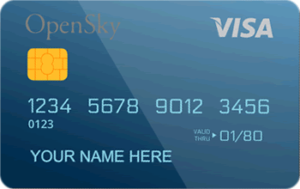
Unlike most credit cards, the OpenSky Secured Visa doesn’t require a credit check to apply. This card will likely be their best choice if you are trying to rebuild credit after a bankruptcy or collections. OpenSky reports your credit to all three bureaus, which can help you quickly rebuild your credit score.
Pros:
- No credit check, and an 85% approval rate
- Better than average APR of 18.14%
Cons:
- $35 annual fee
- No rewards offered
- Does not allow Balance Transfers
- Above average Cash Advance Fee of 5%
- 3% Foreign Transaction fee
Applied Bank Secured Visa Gold Preferred
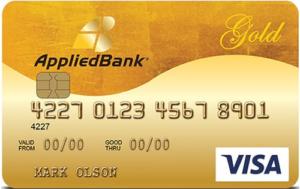
The Applied Bank Secured Visa card card comes with a category leading fixed APR: 9.99%. More importantly, your interest rate won’t increase even if you’re late with a payment. While the APR is low, there is no grace period offered. That is to say that you will be charged interest from the day you make each purchase. Whereas most cards won’t begin charging interest until the following month.
Beware though; this card is loaded with hidden fees. Applied Bank charges a $48 annual fee, $30 for a replacement card, $0.50 per account inquiry through their system, and even $12.95 for optional payments.
Pros:
- No credit check required
- Best in class 9.99% APR
- No penalty APR for late payments
Cons:
- $48 annual fee
- No grace period on interest charges
- No rewards offered
- Does not allow Balance Transfers
- Above average Cash Advance Fee of 5%
- 3% Foreign Transaction fee
- Lots of hidden fees
Citi Secured Mastercard
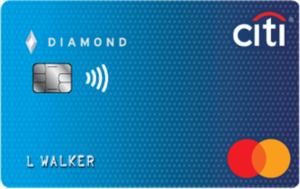
The Citi Secured Mastercard helps you build a credit history for your financial future with no annual fee. If approved, a security deposit is required for the amount of your credit limit, between $200 – $2,500. Once available, you will also have free access to your FICO score online. Citi also offers an ID Theft Protection program that can help secure your information online.
Pros:
- No annual fee
- Free FICO score access
- Free ID Theft Protection
Cons:
- Above average 23.99% APR
- No rewards offered
- Above average 5% fees for balance transfers and cash advances
- 3% Foreign Transaction fee
- Lots of hidden fees
First Progress Platinum Elite Mastercard Secured
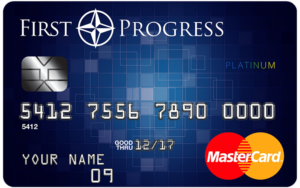
First Progress offers a trio of secured credit cards: Platinum Prestige, Platinum Select, and Platinum Elite. The main differences are the annual fee and the interest rate. To clarify, the Prestige has an 11.49% APR with a $49 annual fee. The Select is 15.49% and $39 annually. Finally the Elite is 21.49% and $29 annually.
On the positive side you can choose a First Progress card based on your usage. If you typically carry a balance from one month to another, you would benefit from the lower APR. If you pay your card in full every month then you would be best served with the lowest annual fee. On the negative side, none of the cards lead in any category. You are either stuck with a higher than average annual fee, or you are stuck with a higher than average APR.
Pros:
- Better than average APR with the Prestige Card
- Low 3% (or $10, whichever is higher) fee for cash advances
Cons:
- Annual fees on all cards
- No rewards offered
- No balance transfers
- 3% Foreign Transaction fee
Surge Secured Mastercard
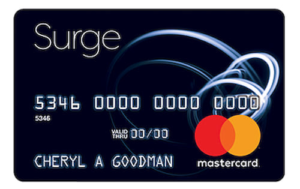
A Surge Secured Mastercard comes with an initial credit limit that ranges from $300 to $1,000. Furthermore it’s one of the few secured cards on the markets that offers rewards with 1% cash back on all purchases. Conveniently you’ll get free access to your Vantage 3.0 score from Experian when you sign up for e-statements. Surge will automatically review your account after 6 months in order to possibly raise your credit limit.
The ability to earn rewards might distract some cardholders from their credit-building goals, so you’ll want to be careful not to overspend in an attempt to earn cash back. Also, the card features a number of high fees, including a $69 annual fee, up to a $41 late payment fee and a $30 additional card fee.
Pros:
- $300 minimum credit line is higher than average
- Better than average 19.99% APR
- 1% cash back on all purchases
Cons:
- $69 Annual fee
- $30 additional card fee
- Above average 5% (or $5, whichever is higher) fee for cash advances
- No balance transfers
- 3% Foreign Transaction fee
- Maximum credit line is a below-average $1000